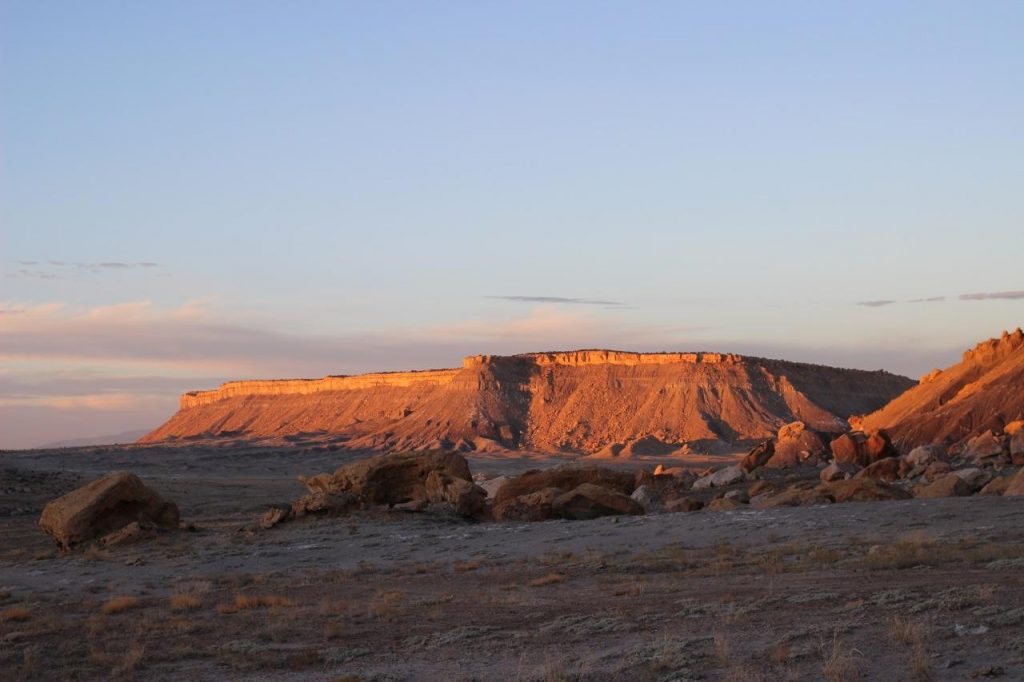Among the numerous arguments that have been put forward against the theory of evolution, one of the most widely entertained is the one put forward by creationist Michael Osland. According to the creationist, earth’s crust and layers were put together rapidly, through Noah’s Flood, a claim which is highly unlikely. Another creationist favorite is the theory of punctual decay, which postulates that the earth has been in an environmental state, for some time past its “maturation,” when suddenly it begins to decay. The “perfect” global warming theory is also said to have been put into place at a very rapid rate, with catastrophic ice sheets discharging massive amounts of greenhouse gases. According to creationists, all these events must have happened over “a very short period of time,” leaving no room for further development of life.
Not only are there plenty of disagreements in the peer-reviewed scientific literature on the question of global warming and the cause of the earth sciences, but there is also a wide disparity in opinions amongst scientists themselves. The vast majority of scientists, according to the latest surveys, believe that the Earth has entered a new geological era known as the “Anthropocene,” or that it is experiencing a rapid rate of climate change. Some of them opine that this sudden climate change is not caused by humans, arguing that there is simply too much natural heat being emitted by the planet to sustain human life. However, other geologists are more pessimistic. They say that while the climate change may be occurring, there is no guarantee that it will continue into the future.
According to leading creationists, the slow rate of climate change is evidence that man-made global warming is taking place and will lead to the eventual extinction of human beings. According to their beliefs, a large asteroid hit the planet 65 million years ago and wiped out the dinosaurs. Another large comet or asteroid that hit the planet some 13 million years ago caused the biggest mass extinction in history. Thus, there are “ties” in the fossil record that directly correlate with the theories of creationists regarding the causes of the planet’s recent climate fluctuations.
Some creationists point out that the slow pace of the current climate change is not necessarily bad news. It may be a way for God to send us a message regarding our disobedience to His commands to protect the planet for His creation. Perhaps He wants us to have patience so that we can read His words through time and try to work out His ways before trying to solve problems for the humans who live on the surface of the planet. This, they say, is part of God’s plan.
While there have been several disputes over the years over the causes of the earth climate changes, most professional agree that greenhouse gas emissions are the main cause. To support their claims, most geologists have traced the rise of Earth temperatures over the past half century back to major increases in the concentration of carbon dioxide and methane in the atmosphere. Because carbon dioxide is the dominant source of gas emissions, this seems to be the perfect way to determine recent trends. By examining the present day geology of the planet as it has stood over time, we can piece together how human activities and carbon dioxide concentrations are affecting the climate. Through the evidence derived from radiometric and paleo-chemical survey, these scientists are able to conclude that recent climate change is indeed caused by human beings.
Although these arguments have been used against the theory of evolution, it must also be kept in mind that even the most established scientific institutions have their limits. Creationist claims are not accepted by most mainstream scientific institutions. The controversy over the Knapp model has only strengthened creationism. If the theory of evolution is wrong, there is no need for further research into the history of the Earth. But if the theory of the infallible creation is right, there is certainly no need to do research into the history of the Earth.


